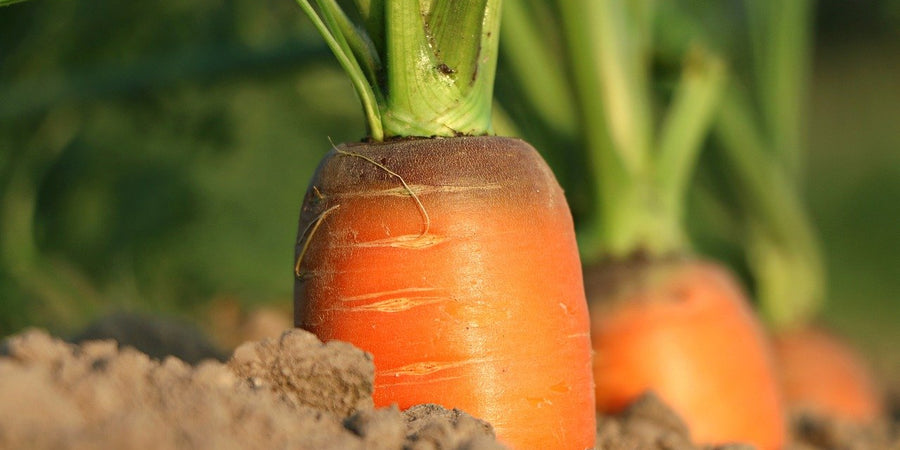How To Grow Carrots

Carrots, these biennial crops are widely known for their crunchy orange roots were once a white, purple and yellow coloured vegetable with the latter two with orange tinged cores. Carrots originating from Persian region, present day Iran. They spread east to China and established well in mediterranean Europe too.
Flemish people changing the once purple vegetable to orange in honour of their king, King William of Orange for the struggle for Dutch independence, and this orange colour has stuck ever since. Since the resurgence for heritage vegetables, all the other colours are now available with some being early cultivars for quick crops and main crop cultivars good for storing. They can be grown in containers if you are short on space, or your soil is stony or heavy clay. Sow regularly for prolonged cropping. They freeze and store well too.
Here's How to Grow Carrots:
How, Where & When to Grow Carrots
Carrots grow best in free draining sunny site; in ground that has had organic matter added to it 12 months ago. Early varieties of carrots are direct sown in spring under cloche protection; with the main crop variety going down during mid summer. Sow seeds in previously watered drills with depth of 1-2cm.
Try growing short rooted varieties such as Chantenay in containers with a 50:50 mix of sand and multipurpose compost.
Distance
Sow a few seed every 2cm apart to help reduce on thinning with final distance space of 10cm apart allowing 30cm between rows.
Regular Care
Process of thinning releases foliage scent, which invites carrot root fly. Thin in the evening to reduce the effect. Weeding around the plants should be performed by hand and water plants regularly.
When Do You Harvest Carrots?
Baby carrot varieties are ready to harvest in 8-10 weeks with full sized carrots taking 12-16 weeks variety dependent.

Nutrition
Carrots contain valuable amounts of antioxidant nutrients. Included in this category of nutrients are traditional antioxidants like vitamin C, as well as phytonutrient antioxidants like beta-carotene. In most varieties of carrots, beta-carotene is by far the most plentiful antioxidant nutrient, accounting for over 95% of all carotenoids in many carrot varieties. Other carotenoids typically present in carrots include alpha-carotene and lutein. They're a weight-loss-friendly food and have been linked to lower cholesterol levels and improved eye health.
Carrots are low in fats and protein but contain potassium, calcium and iron along with vitamins B, C, K. They are very high in beta-carotene which is an antioxidant that your body converts into vitamin A. Vitamin A helps the immune system work, helps vision in dim light and promotes healthy skin. Carrots contain a substance called falcarinol which helps in promoting colon health and may reduce the risk of cancers.
Carrots contain pectin and have been used in some jams to help setting.
The sweetness of carrots comes from them containing sucrose, fructose and glucose. Hence their use in carrot cake.
Cooking
You simply cannot beat a homemade Carrot cake. Carrots make great soup – think Carrot and Coriander…give them the Asian treatment with a zingy Vietnamese Carrot salad, and be creative by grating and adding them to potato rosti’s.
Growing Guides
If you're thinking of sowing other vegetable and herb seeds, discover more of our growing guides.




